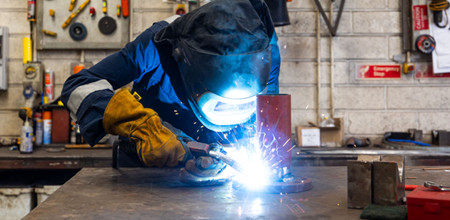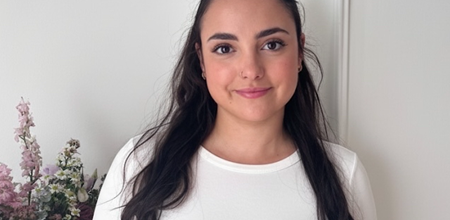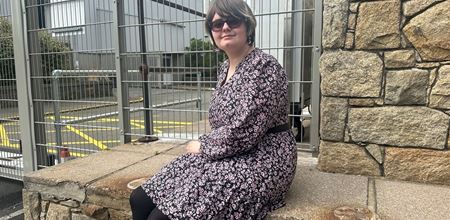To mark International Women in Engineering Day 2025, apprentice plumber Skye shares insights into her role and what it's like to work in a typically male dominated trade.
We use the terms ‘women’, ‘girls’ and ‘female’ to include all individuals who identify as female.
What got you interested in plumbing, and how's your experience been so far?
Like many people leaving school, I wasn’t sure what I wanted to do. The thought of choosing my forever job was really overwhelming, but what I did know for certain was that I really enjoy practical, hands-on work.
Through school, I found out about the Links program offered by the Guernsey College of Further Education, so I thought I’d give it a go and see what it’s all about. It’s something that gives local students the opportunity to try out all the different types of trade work at a young age, which really appealed to my love of hands-on work.
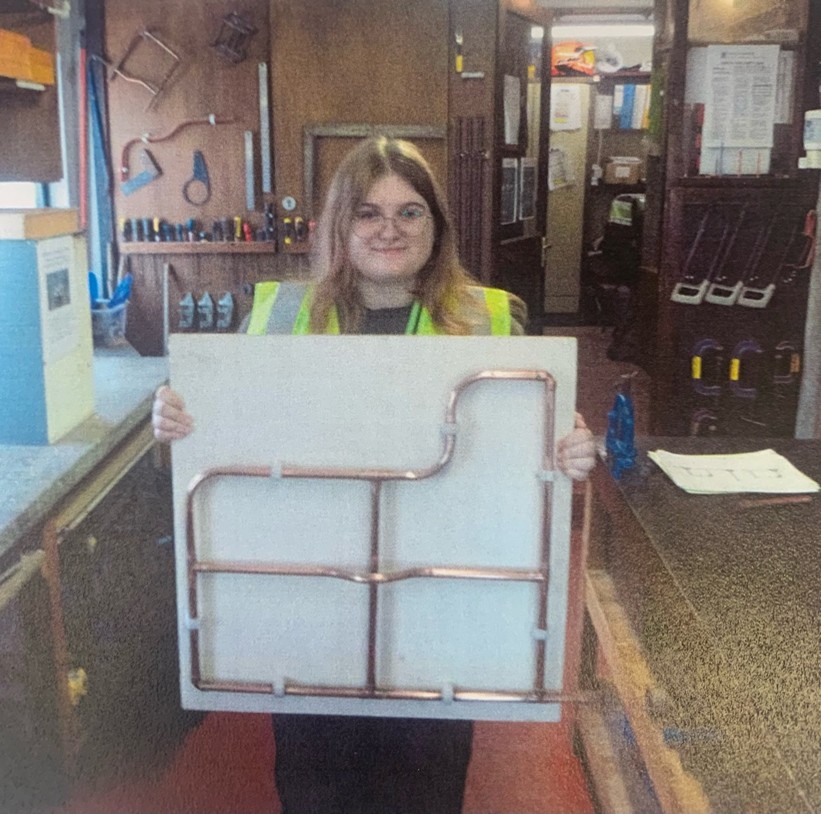
I went through all the trades available on the program and eventually it became a choice between bricklaying or plumbing – in the end I went for plumbing as I enjoyed that the most. It was all thanks to this program that I discovered I could do something I enjoy and get paid for it.
Since I started my apprenticeship at Guernsey Electricity (“GEL”), I’ve learned so many new things and picked up loads of valuable skills that in the past may have only been available to men. I’ve learned plumbing isn’t all about fixing taps and toilets and there’s lots of things to get involved in, particularly when the need for plumbers in Guernsey is so high.
Have you faced any challenging situations as a female apprentice plumber? How did you handle them?
Just finding someone willing to take me on as an apprentice was a real challenge for me.
I’d applied to lots of places, but most either said no or didn’t reply at all, which was quite disheartening at times.
But eventually, a local plumbing firm gave me a shot. Although it was only a short period of work experience, it made all the difference to my confidence and motivation to keep looking. Getting hands-on and seeing the job up close reminded me why I wanted to do this job in the first place, and they gave me the boost I needed to keep applying and not give up.
Not long after, I landed my apprenticeship at GEL. Now nearly a year in, I’m learning on the job, working with a great team and studying at college.
I get that some companies might have doubts about hiring female tradies, but this also means they could pass up someone who’s genuinely committed, skilled, and could become a real asset to their company, particularly at a time when everybody needs a plumber.
How do people usually react when they find out you're a plumber?
Having a young, female plumber visit your house is quite unusual, so I can get quite mixed reactions. Some of them are quite shocked! There is the possibility that with some customers, it’ll be better if I just don’t get assigned to the job as they won’t accept me as a female plumber.
But it’s also weighed up by positive reactions from people who are very supportive and encouraging, which really goes to show how outward support for females in traditionally male-dominated industries is so important.
The mix of reactions is why visibility and opportunities really matter. The more people see women doing these jobs, the less unusual it will be.
Just like being a doctor, a lawyer, or a journalist used to be seen as a ‘man’s job,’ now it's completely normal if they’re a female. This shows how things can change when more women enter a field and are given the same opportunities, and perhaps we’ll see the same in plumbing one day too.
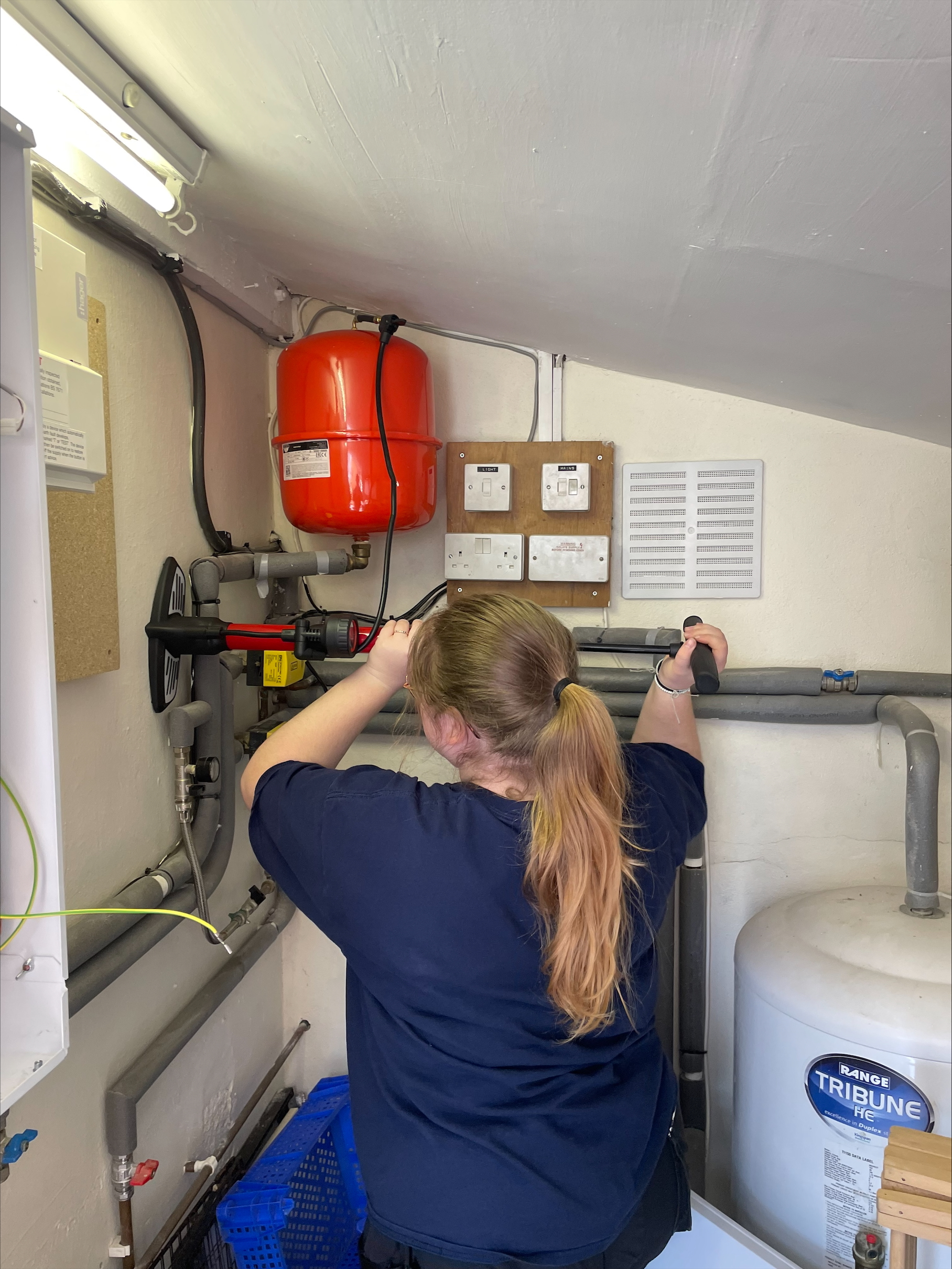
If you could bust one myth about plumbing or apprenticeships, what would it be?
It isn’t all about unblocking toilets 💩
In fact, there’s loads of work plumbers do, including heating installations, working on kitchens and bathrooms, dealing with pipework, water systems, even renewable tech like heat pumps. It’s hands on and technical, so every day brings something different.
How do you think schools could help encourage more women to consider working in a trade or engineering?
Schools play a huge role in shaping how young people see their future options. And that includes females who are interested in careers such as trades or engineering.
For me, it felt like school didn’t take my interests seriously, and instead tried to nudge me toward something they thought would suit me better. Luckily, my parents stepped in and supported my choice to give it a go, but not everyone has that kind of support at home, which is why school encouragement is so important.
Teachers should help make it clear that these jobs aren’t just for boys. If a girl shows interest in hands-on, practical work or any specific trade, teachers should help her explore it with the same enthusiasm they’d show for a boy.
It’s all about showing that these industries are open to everyone, not just one gender.
We also need to create environments where trade and engineering careers are spoken about as normal options for everyone, not just boys. Girls need to hear that they’re capable, welcome, and just as suited to these paths if they’re ready to work hard and learn. It’s that kind of early encouragement that can make all the difference.
How did you hear about GEL's apprenticeship programme, and how have GEL supported you through your training so far?
I’d heard GEL offer apprenticeships, so after a lot of rejections, I decided to reach out and see if they had anything. They’ve been supportive since I joined the Electrical and Plumbing team and have tried to include me as much as possible to make sure my age and gender don’t limit my experience or opportunities.
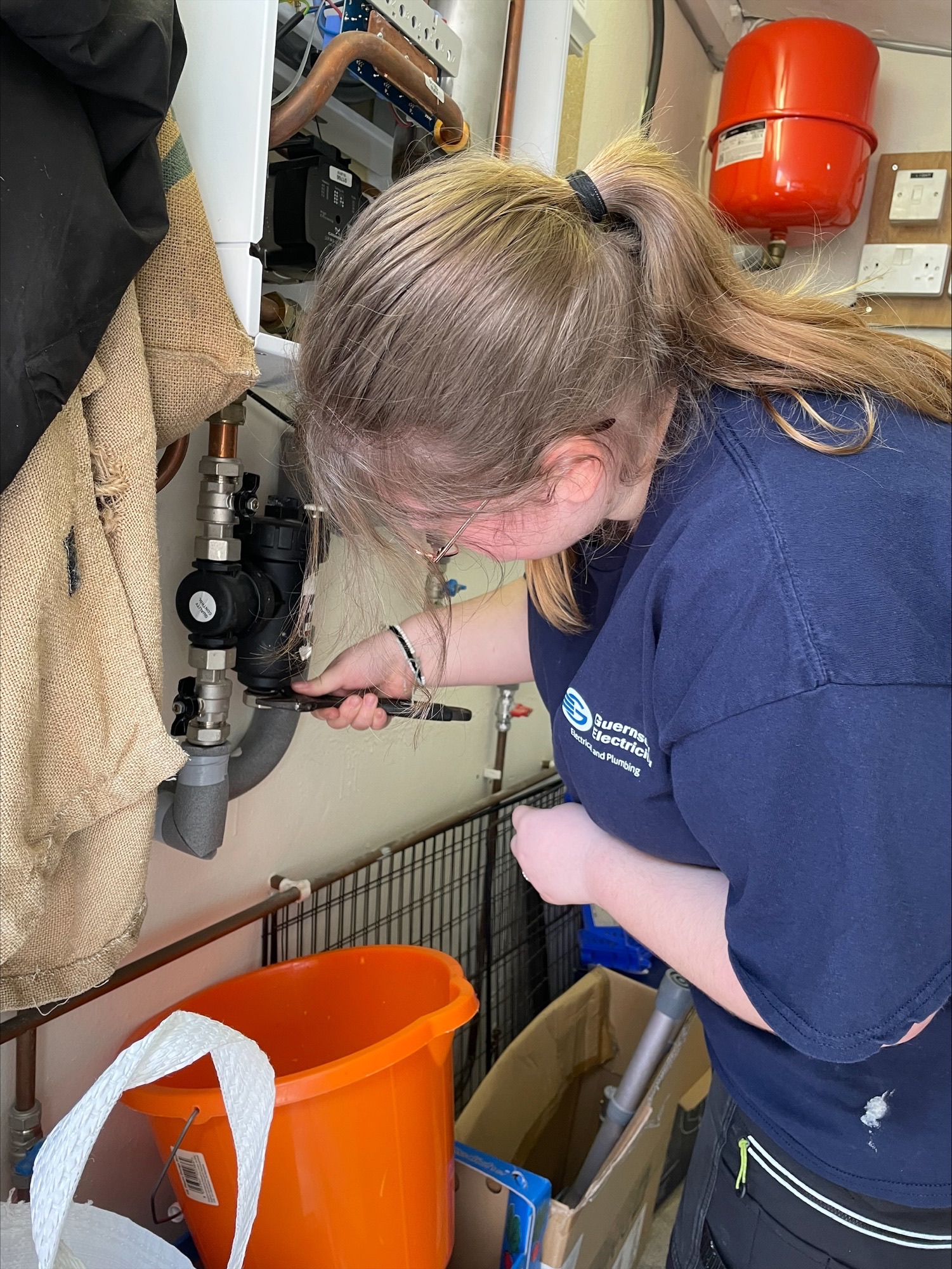
What do you wish more people understood about women working in trades?
Skill and capability in a trade has nothing to do with a person’s gender.
If a female has done the same training, earned the same qualifications, and put in the same hard work as a male, she’s just as capable and should be given the same chances. Is it fair to say no just because the ‘female’ box has been ticked?
More and more women are entering the trades, proving every day that the old stereotypes don’t hold up. What really matters is dedication, not whether you’re male or female.
At this point in time, it’s still fairly unusual to see female plumbers, electricians, engineers, firefighters, mechanics or pilots. But seeing a female doctor, policewoman or lawyer was unusual decades ago too. We could now be seeing a turning point in the trades and other hands-on careers, and the more visibility we have through initiatives like International Women in Engineering Day, the more normal it becomes.
Interested in working with us? click below.








